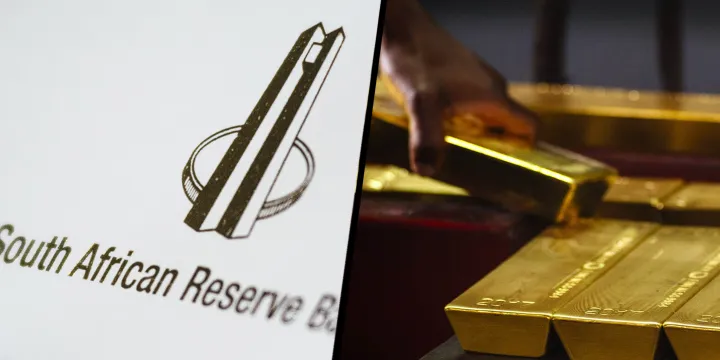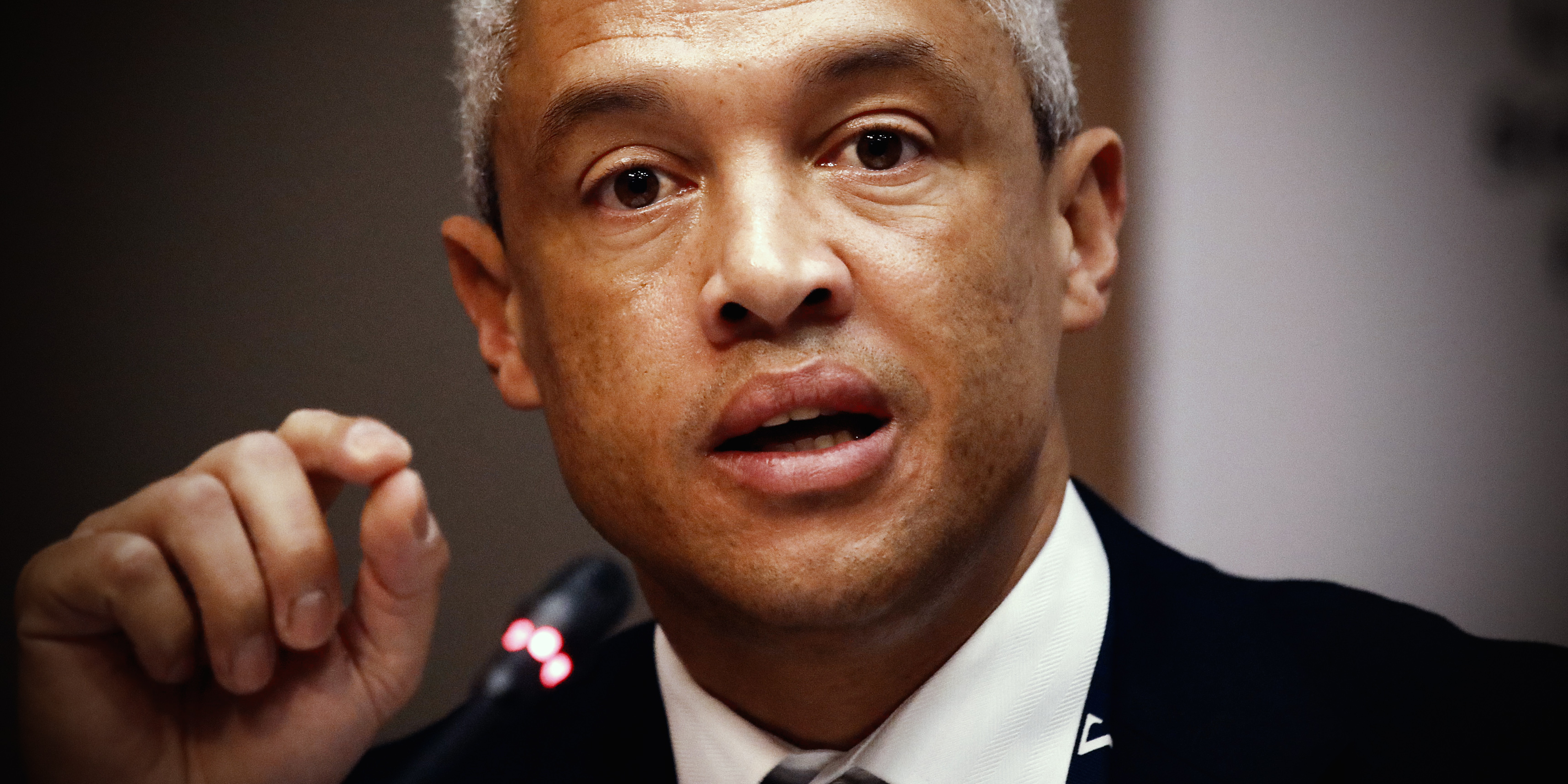BUDGET 2024
Tapping into Sarb’s pot of gold and currency reserve funds gives public finances breathing space

Treasury has managed to avoid a debt blowout and reverse a plan to implement big departmental budget cuts by asking the Reserve Bank for help. It plans to directly withdraw R150-billion from the accumulated funds of the Gold and Foreign Exchange Contingency Reserve.
To avoid a debt blowout and reverse planned departmental budget cuts, National Treasury plans to monetise and withdraw some of the accumulated funds in the Gold and Foreign Exchange Contingency Reserve, held by the South African Reserve Bank (Sarb).
These funds, held in an account, reflect the losses and profits due to currency and gold price movements, the latter set in dollars. In other words, these are funds in reserve and are meant to offer a buffer and protection to South Africa against local and external economic shocks.
In the account there are funds worth R506-billion, which have grown from R28-billion since 2003. When the rand exchange rate against the US dollar and other currencies strengthens, the value of the funds declines. When the rand depreciates, the balance improves. Because the local currency has weakened significantly against other currencies and the gold price has appreciated, over the past decade funds in the account have appreciated.
Other countries have a similar contingency reserve mechanism and the gains are paid from central banks to the fiscus from time to time.
Of the R506-billion, Treasury plans to directly draw down a portion, about R150-billion, over the next three years. Treasury will receive distributions of R100-billion in 2024/25, R25-billion in 2025/26, and R25-billion in 2026/27 from the Sarb. An additional R100-billion will be set aside to absorb exchange rate swings, cover costs associated with the transfer, and protect the solvency of the Sarb. Failure to set aside this money would create an obligation for Treasury to cover exchange rate losses, and result in adverse conditions such as inflation and interest rate pressures.
The accumulated funds are “not free money as there are costs associated” with realising them, said Treasury director-general Duncan Pieterse during a pre-Budget briefing with journalists on Wednesday, 21 February.
Treasury taking advantage of the accumulated funds in the Gold and Foreign Exchange Contingency Reserve was broadly expected as the funds, though held by the Sarb, are seen as part of broader public funds.
Treasury said the process to monetise the accumulated funds will be formalised through legislation, which is set to be tabled in Parliament on Wednesday.
Reducing debt levels by drawing down funds
Pieterse said the drawdown from the accumulated funds will go towards reducing the government’s borrowing costs, and not consumption measures such as paying public servant salaries or funding service delivery programmes.
The government’s debt and related costs (such as interest rates) are smothering because they divert funding away from crucial service delivery programmes and initiatives to grow the economy and encourage investments into the country. Gross debt has grown from R1.58-trillion in 2013/14 to R5.21-trillion in 2023/24 and is set to exceed R6-trillion by 2026. South Africa’s government gross loan debt is at its highest since 1947. However, most of the debt is in local currency, which helps South Africa avoid a total debt blowout.

Duncan Pieterse, Treasury director-general, at a news conference before the Budget presentation in Cape Town on 21 February 2024. (Photo: Dwayne Senior / Bloomberg via Getty Images)
Debt-service costs (mainly interest) are set to rise from R356.1-billion in 2023/24 to R440.2-billion in 2026/27. In 2023/24, for the first time since 2000/1, debt-service costs absorbed more than 20 cents of every rand collected in revenue.
Pieterse said monetising/realising the accumulated funds from the Gold and Foreign Exchange Contingency Reserve will result in debt service costs being reduced over the next three years by R50-billion. If monetising the accumulated funds was not an option, he said Treasury would have had no option but to raise money or debt by issuing more government bonds at a time when interest rates are raised. This would further worsen the government’s debt-servicing costs.
Treasury is also finding it difficult to attract lenders that will lend it money with a long-term repayment profile (in some cases 10 or 20 years) because of the noise around the fiscal crisis, which is making South Africa look like it is at increased risk of defaulting on debt repayments.
Funding other government initiatives
Reducing debt service costs will give the government space to fund other initiatives from its existing funding framework, and limit its borrowing just to pay interest on existing debt. For example, about R58-billion of the spending reductions that were announced in the 2023 Medium-Term Budget Policy Statement have been reversed as the government has increased spending for most state departments. Most of the additional spending, though, will be allocated to funding the pay of public servants such as teachers, nurses, doctors and police.
An amount of R251.3-billion has been added to functions including health, education, peace and security, and social development. This has largely been allocated to funding pay increases for public servants over the next three years.
Set at R754.2-billion in 2024/25, the cost of paying public servants is the single-largest component of government expenditure. It gobbles up 30% of total expenditure of R2.4-trillion in 2024/25, crowding out spending on capital projects for future growth as well as items crucial for service delivery. Treasury is also taking a new approach to containing the cost of paying public servants.
For example, it is increasingly asking provincial government departments to accommodate pay increases from their existing budgets, rather than allocating them new money for remuneration costs. DM




















 Become an Insider
Become an Insider
It is dishonest to say that drawing on the fund will not go to paying salaries. If the funds were not drawn, government would have to cut public service wage bill to balance its books, as the interest on debt is entirely impossible to cut. We are effectively using savings to cover operating expenses, and that will never end well. By 2027 interest will be 25% of total budget. We must cut the public service wage bill!
If there is way to define a surplus size in that fund, it should advance capital to infrastructure projects instead of the projects going to IMF or World Bank or EIB for funding.
Well, I guess now that they have opened the cookie jar we will be lucky if all we ar left with is crumbs.
And if, (Dog willing), the ANC/EFF does not form the next government we can expect a lot of those “gains” to be wiped out as the Rand suddenly reverts to the level it ought to be at.
One has to wonder where we go when this pot of gold is used up? Its not as if our exports and currency will naturally improve anytime soon. And neither has the corruption and theft from the Fiscus been properly dealt with and perpetrators punished! We’re raiding the larder now…. Very short term solution as there are no real plans to restock it!
The problem with selling the family silver is that you can only do it once. Yet again we all pay for ANC ineptitude. I would almost bet my own family silver that public wages will increase beyond inflation, never mind being cut.
Good move, the once, the trick is to understand that that is it, and ignorance abounds at Cabinet level.
Let the looting begin…..
The Guptas must be kicking themselves for missing this little nest egg.
Selling the family silverware to buy bread is where we are as a country.